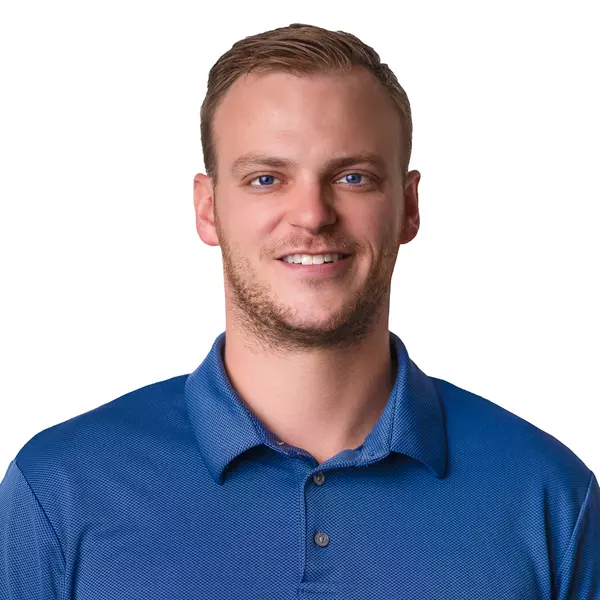Living in Utah as a Non-Mormon
Living in Utah as a Non-Mormon
Do you want to know what it's like to live in Utah? If you're not Mormon, then stick around, because we're going to discuss that right now. Before we jump into those things, though, welcome to the page. If you're new here, I want to welcome you. If you're not, welcome back.
My name is Cody. I'm a Utah-based realtor. I was born and raised here in Utah, Utah, and I work as a real estate agent all along the Wasatch front. And I have so many people reaching out to me moving here to Utah. They want to know what it's like to work, eat, sleep, live, and play here along the Wasatch front.
If you're thinking about making that move here, make sure to reach out to me as well. (Contact info here on the website) I would love to help you with your transition. My information will be written at the end of this article. I absolutely love it when you guys reach out, and I can't wait to hear from you.
I make articles about everything you need to know about living here in Utah, and you don't want to miss a thing if you're thinking about making that move here or even just coming to visit. So with that said, let's jump right in.
This is a question that I get all the time when you guys reach out to me asking, “Hey, what's it like to ACTUALLY live there in Utah?”. This is a question that almost always, inevitably comes up and you want to know about, I think, a little bit hesitant to talk about this topic just because it can be a little bit touchy. There are certain things like religion or politics that honestly, I just try not to get involved with because everybody's got a different opinion and it never seems to be a positive conversation in the end. So I've been a little bit hesitant to talk about it. But I knew that you guys needed answers and I knew that you guys wanted to know about it.
So here we are. Now, the other reason that I've also been a little bit hesitant to talk about this is because it's my job as a real estate agent. I have to be unbiased in the way that I help people buy or sell real estate. I can't steer them towards a neighborhood or towards a house or community or even away from that house or community just because of things like religion, demographics, politics, whatever. I just have to give you an unbiased opinion about that neighborhood and let you make the decision so that's one of the other things that I've been a little bit hesitant about is I just don't want to step on any toes.
I don't want to do anything unethical. I just want to stay within the lines here because I absolutely love what I do and I don't want to risk losing my license or getting any bad marks against me if you will. So that's been one of the other reasons. But like I said, I knew you guys needed answers. And so I want to make a few disclaimers before we jump into this and just give you a couple of facts first, and then I'm going to give you my perspective on the situation, what it's like to actually live here and grow up and just be in this community day-to-day.
So my first disclaimer to you is that I was born into an LDS family. Half of my family is LDS, and half of my family is not. I've seen both sides of it growing up. I did go to church growing up, and by the time I was about 16 years old, I just decided, look, this isn't for me anymore. This isn't something that I want to be a part of.
There were some things that I just disagreed with, and it just wasn't a part of my life anymore. So since I was 16 years old, I really haven't been back to Church or had any involvement at all with the LDS Church. I've really seen both sides of it. I've seen what it's like to grow up in the Church. I've seen what it's like to go to Church and be a part of that.
And then also the flip side to basically be totally separated from it as well. With the fact that half my family's Mormon and half my family is not. I've also seen both sides of it from every perspective. I think I have a pretty good idea of what it's like to be in this area and be a part of the Church or not be a part of the Church. Also, I should note that if you make that move here to Utah where you visit here, people are going to say the Church, and by that they mean the Mormon Church.
It's just become so commonplace here to use that term that it's kind of become a habit for me as well. All right. So I think I've made the proper disclaimers for this. Take this information as you will, and make your own decision based on it. Let's get into the meat and potatoes.
What do you need to know?
First. I want to start off with some facts about the Mormon Church and then, as I said, I'm going to share my perspective about what it's like to actually grow up here and some things that maybe you should be concerned about if you're thinking about making that move here and you're not part of the LDS religion. In doing some research around this topic and looking for facts about what the numbers actually say, I actually came across a great article that was done by the Salt Lake Tribune just a couple of years ago in December of 2018. It gives an amazing perspective about what it's like to live here in Utah and whether or not you're a member of the Church.
It doesn't really matter. It actually touches on both sides and in my opinion, actually has a pretty unbiased view about what you need to know if that's something you're concerned about. I'm going to drop a link to the article below. After you finish reading this blog, make sure to go check it out. I'm going to touch on some of the points here, but I do think it would be worthwhile for you to read this entire article just to see what other people are saying about what it's like to live here.
Alright. So jumping into some of the numbers, the LDS Church right now reports that 2.1 million people in Utah are members of the Church. They state that 49% of the population in Salt Lake County is a member of the Church, which is roughly 500,060 out of the 1.14 million actually live here in the state. Utah county is one of the most populous LDS regions, sitting at 82%. Davis county sits at roughly 65%, Weaver County at just over 50%, and Summit County, where Park City is located at roughly 28%.
Now, I do need to mention that you might be looking at these numbers and thinking, wow, those seem really, really high. And yes, they are. But you have to keep in mind that not all of those members that they're reporting are actually active. The Church is reporting numbers for people who are part of their records. But that doesn't mean that everybody is actually active.
Looking at the article here on my phone, it actually says now independent demographer Matt Martin says that roughly 40% of LDS people in the United States are actually active, and only about 50% of Salt Lake County members go to Church. That's roughly 24% of the county's population. So when you look at this, I think that's actually pretty close and accurate. There are a lot of people who are members of the Church but are not actually active in going to the Church every single week or even following a lot of the guidelines that they teach. You can be a member of the Church and be counted in these numbers, but that doesn't mean that you're necessarily active.
So the actual community, they're estimating that roughly 24% of Salt Lake County is actually an active member of the Church. It's also worth noting that you're going to have a wide spectrum of members here. On the one hand, you're going to have people who are super extreme. They follow every single guideline, and they go to church every single week. And then, on the other hand, you've got people who haven't been to church in 20 years.
They don't follow any of the guidelines of the church. You're going to have a wide range there. A lot of people fall right in the middle. They go to church almost every week.
They follow most of the guidelines. They do their best. And you've got a lot of people right there in the middle. And so I think it's important to keep that in mind because you're going to see people on both ends and a lot of people in the middle. And I think that will kind of influence how you perceive the community as a whole.
So just keep that in mind as you kind of do research on this, and if you make the move to the area, just remember, not everybody is extremely hardcore. Not everybody is active. So we just talked about Salt Lake County having roughly 24% of members who are active. I would believe that in Utah County and Davis County, which sit to the south and the north of Salt Lake County, I believe those would probably be a little bit more active, just from my perspective.
So let's say that it's roughly 60% of members who are active. Right. So let's look at Utah County, for instance, if you've got 80% of the population who is reported to be LDS, but only, let's say 60% of those actually attend Church and are active, that puts you at roughly 50% of the county who are actually active members of the Church. So you're still at one half there. But it could actually be in the minority of people who are strictly active and go to Church every week.
In Salt Lake County, Davis County, in Weaver County, even Summit County, where Park City is, it could be even a lot less. So now that we've talked about some of the numbers, I want to talk about some other things that you need to know about the LDS Church just in general. Right. It's generally a very conservative religion. They tell you not to drink.
They tell you not to smoke. They tell you not to get tattoos. They want you to go to Church every week. They want you to be kind and loving. A lot of these can be great qualities.
So these are things that you have to kind of keep in mind as far as what it's like to actually live in the community there. Right. So if you're not supposed to drink, well, naturally, that means that there's not going to be as many bars or breweries around here in the Salt Lake area. There are bars, there are breweries out there. I don't want to give a false expectation that there's just nothing out here.
We're totally dry or something, but there's just not as many. Right. You go to California, you go to any other state, you can find bars and breweries just about everywhere. Right. But here in Utah, it is a little bit more restricted.
Same thing with other shops, such as coffee shops or tattoo parlors or whatever. Those are just going to be fewer in numbers, which necessarily isn't a bad thing. It's just become more restrictive just because there's not as much demand for it because a large portion of the population doesn't necessarily believe in taking part in those things. Right. So now let's talk a little bit about my perspective, having seen both sides of it and actually grown up and now living in the community. For me, I think that for adults, it's really kind of a non-issue.
I don't think it's something you really need to worry about. If you're living in Salt Lake County and you've got a minority population who are actually members of the Church, and probably only roughly 24% of those members are actually active, that's only one in four members that are going to be LDS. So I don't think it's something that you really need to worry about. There are a lot of other countries and even States and even cities where populations of a certain, let's say, religion or a demographic or political party or whatever, those numbers are going to be much higher in a lot of other cities as well. So it could be comparable to something like that.
So for adults, I don't really think it's something you need to be worried about. I think for kids you could have a little bit of confrontation every once in a while. I have heard stories where kids are like, oh, I can't play with this kid because his parents are LDS and we're not, and they don't like the fact that our values don't align or whatever. It's kind of silly. You can still be great kids.
That is super rare. I don't want you to think that that's happening all the time. There are tons of kids here. I've heard stories about kids growing up, every single kid in their class was a member of the Church, and now the kids of the Church are actually the minority. So it is becoming more diverse.
I think for kids, you may see some separation there. It's just kind of one of those things in the article again, it says that the people of the same kind like to be with people who are like them. Right. And that's understandable. It's just how you generally associate with people who have the same values or views as you.
So that's totally normal. Nothing new there. So it's just one of those things to kind of keep in mind that your kids may make friends because they're in the Church or they may not make friends because they're in the Church. And I think that goes the same for adults. Right.
Adults generally make friends and hang out with people that are like them as well. So I don't think it's really an issue if you're moving to Utah. I don't think it's something you should be concerned about. It is a big part of the culture here, and you will be exposed to it. I'm not going to say that you're just not even going to notice it, but I think there's actually a lot of things that can of kind work in your favor because it is such a part of the culture here.
So to touch on a couple of those things. I think there are actually a few points that can kind of work to your advantage. If you yourself have kind of conservative values. I think you could actually fit in really well with the people who are here. I'm not saying that you have to be conservative or whatever, whether it's economically, politically, whatever.
But if you just generally want to be a nice, kind person, that's something that can fit in, because LDS people are generally known for being very nice, being very kind and welcoming. So I think that's something that can work to your benefit there. I also want to point out that on Sundays, a lot of things are going to be closed, right? A lot of shops close early, a lot of restaurants are closed. So it can be kind of a bummer to not have access to that.
But on the other hand, you've got great access to the outdoors. You've got access to the grocery stores. You've got access to a lot of stuff that's going to be half empty because those members of the Church are not going out on Sunday. Right. That's one of the things that the Mormon Church teaches is generally the day of Sunday should be a day for rest.
You shouldn't go shopping. You shouldn't go out and do entertainment or anything like that. It should be a day for rest to kind of recollect from the week. So that's one of those things where you can actually go hiking, go skiing, go out and about, go to grocery stores, whatever, and do all that stuff, because it's going to be half as populated as it normally is, especially comparing if you were to go on like a Saturday, for instance. And one of my favorite things is actually being able to go to a restaurant.
And if there's a way to get into the restaurant, a lot of times you can actually get into the bar and sit at the bar and order a drink and not have to wait at all. A lot of people don't want to sit at the bar. So I love going to the bar and ordering a drink and just being able to get right in just because there are fewer people who want to sit there. So there are a lot of things that can actually work in your favor. It just depends on how you look at it.
So with that being said, I think we covered just about everything. I gave you all the disclaimers that you need to take this information and absorb it and really make that decision for you if it's going to be an issue or not an issue. I don't think it's really something that you need to be concerned about. If it is, I would consider moving to Salt Lake County or maybe even Summit County, where the populations are just generally lower. But don't be afraid to move to Utah County, Saratoga Springs Provo Lehi, a lot of those areas, like I said, the amount of people who are actually active is going to be much lower than you think or that you've heard.
So just keep in mind that the area is growing as well. There's a lot of diversity coming into the state, a lot of people moving in from all different countries and just backgrounds in general. So it's going to become more and more diverse over time and I think it's something that as each day goes on if you're reading this in five years, you really don't need to worry about it. It's not going to be something that affects you that much.
So with that being said, if you're moving here to Utah, make sure to reach out to me, call me, text me or email me anytime time. I absolutely love hearing from you, if you enjoyed this content, don't forget to share it with a friend or a family member who might enjoy it as well.
Catch you in the next one.
Cody
801- 244- 2297
Cody@fastutahhomes.com
The Salt Lake Tribune Article:
Salt Lake County is now minority Mormon, and the impacts are far reaching (sltrib.com)
Categories
Recent Posts
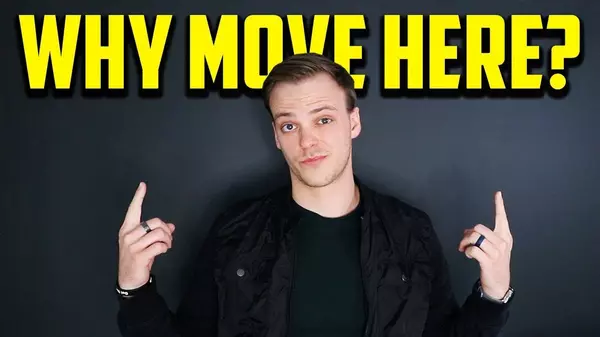
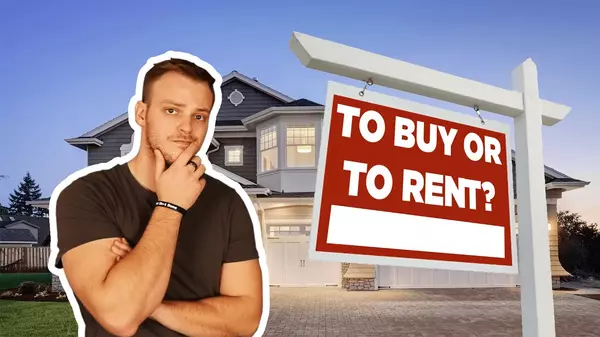
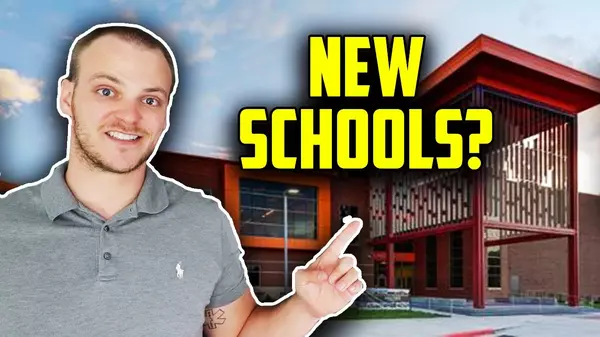
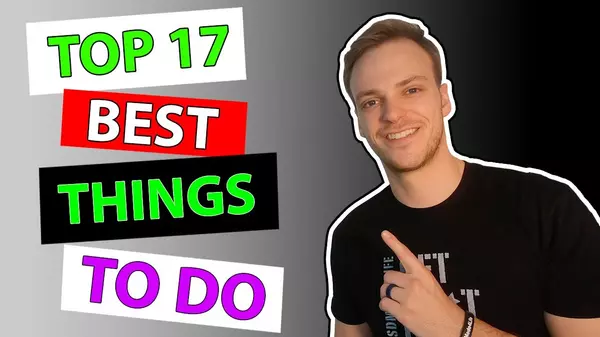

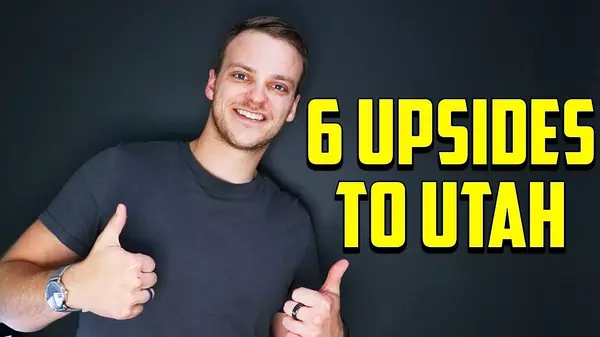
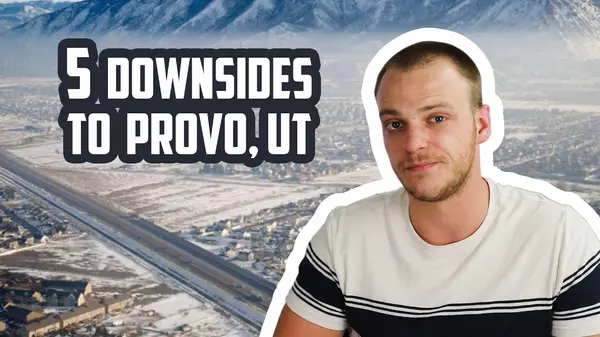



GET MORE INFORMATION
